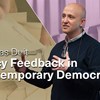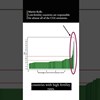address

Andreas Duit
Andreas Duit works in the field of comparative environmental politics and policy, with special focus on the role of the state in addressing environmental problems. Duit is a currently Professor at the

Andreas Diemer
I am a researcher at the Swedish Institute for Social Research (SOFI) at Stockholm University and at the Institute for Futures Studies. I am also part of the Urban Lab network hosted by the Institute
Contact us
Postal address:Box 591, 101 31 StockholmVisiting address:Holländargatan 13, 111 36 StockholmPhone:08-402 12 00E-mail: [email protected].:802013-3198 Opening hours:08:00-11:30 and 12:30-16:00. Find us -

Andreas Duit: Policy Feedback in Contemporary Democracies
How Policy Creates Politics: Policy Feedback in Contemporary Democracies Research seminar with Andreas Duit, Professor at the Department of Political Science, Stockholm University. Andreas Duit works
Andreas Duit: How Policy Creates Politics: Policy Feedback in Contemporary Democracies
Venue: Institute for Futures Studies, Holländargatan 13 in Stockholm, or online. Research seminar with Andreas Duit, Professor at the Department of Political Science, Stockholm University. Andreas Duit
Disease prioritarianism: A Flawed Principle
Medicine, Health Care and Philosophy, May 2015. DOI 10.1007/s11019-015-9649-2 Disease prioritarianism is a principle that is often implicitly or explicitly employed in the realm of healthcare prioritiz
Leaving Rurality Behind: Re-orientation of Spatial Policies in Sweden
The paper will address the changing status of rural regions in policy formation in Sweden, which includes two processes: self-propelling de-population and a shift towards supporting dynamic growth reg

Martin Kolk: Low-fertility countries are responsible for almost all of the CO2 emissions
Do we need to reduce population growth to address the climate challenge? From the perspective that each person contributes to green house gas emissions and resource consumption, it is a logical though

Reducing populations' vulnerabilities to mis-disinformation related to scientific content
The purpose of this project is to develop evidence-based strategies to address populations’ vulnerabilities to scientific mis-disinformation.
Moral uncertainty
Philosophy Compass, 12:3 2017. DOI: 10.1111/phc3.12408 Abstract What should we do when we are not certain about what we morally should do? There is a long history of theorizing about decision-making und








